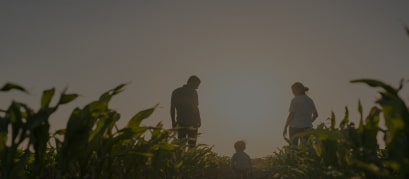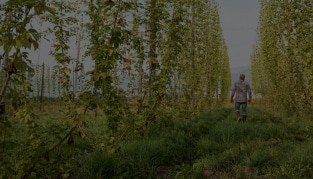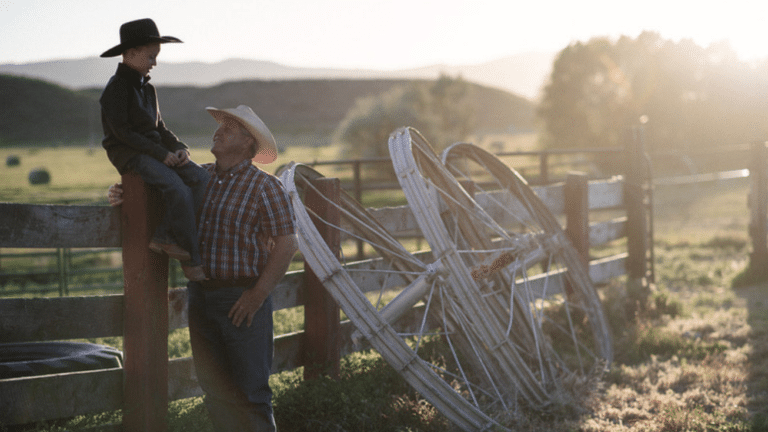What’s the Buzz: the Role of Bees in Agriculture
The lessons learned were many when the AgAmerica team visited Kirkland Farms in early February to learn about bees in agriculture.
The importance of bees in agriculture is well-known, but the extent of the significance isn’t something that everyone understands completely. For those who rely on bees for the pollination of agricultural crops, like blueberry farms and others, bees are as necessary to the operation’s success as sunlight and water. The AgAmerica team recently visited Kirkland Farms, a farm with a blueberry operation located in Lakeland, Florida, to explore the role of bees in agriculture. Find out what all the buzz is about below.
History of Kirkland Farms
Kirkland Farms started as part of the homestead program in 1876, and the land and farm have been in the family ever since. The current ag operation is jointly owned and operated by Nelson Kirkland and Brenda Kirkland Gordon. The farm features a blueberry operation that hosts both commercial blueberry picking and U-Pick open to the public.
Kirkland Farms takes advantage of the hives of commercial beekeeping to pollinate the blueberry bushes. The AgAmerica team visited the farm to talk about the role of bees, but they learned some other interesting points about blueberry farming as well. For instance, the average start-up costs associated with blueberries is now $28,000 an acre, and that doesn’t include land purchase.
One investment is the bushes themselves, which are UF-created breeds—like Emeralds, Jewels, and Scintillas—and each blueberry operation is only licensed for the set number of bushes of a particular variety that they originally purchased. Additionally, the blueberry plants must be mulched every year with pure pine mulch to preserve the optimal pH balance of the soil.
 Learning About Bees in Agriculture
Learning About Bees in Agriculture
The AgAmerica team toured the blueberry farm just as things are ramping up for the 2017 season, which typically starts in March and lasts six weeks or so into April. Bee pollination drives the operation, along with the weather and temperatures, because blueberry pollen cannot be dispersed in the wind or other external forces to pollinate the plants, but is necessary to create each and every berry. Though native bees are present, the operation rents commercial honeybees and purchases bumblebees to supplement. Because honeybees won’t visit plants— beekeepers call it “working”— when it’s overcast or raining, operations must use both honeybees and bumblebees to pollinate the plants.
The operation also has to alternate rows with different kinds of blueberry plants to achieve cross pollination. If a bee encounters too many blueberry bushes of the same variety, they will get bored and return to their hive, done with work. Bees want a variety of different and interesting pollens to collect and bring back to the hive, so Kirkland Farms rotates blueberry bush varieties about every ten rows or so.
The blueberry operation also has to contend with predators, with main predators being birds like Cedar Waxwings. The farm uses air cannons to scare the birds away from the precious berries, but local hawk populations can also keep pest birds away. Just like blueberry farms like Kirkland Farms may engage commercial bees, they may also hire Falconers to bring trained birds of prey to keep the pest birds at bay.
With all these efforts, and an optimized farm layout, Kirkland Farms is able to produce a volume of berries equal to that of a 25-acre, traditionally laid-out farm on only 15 acres! There was so much to learn, the AgAmerica team will likely return during U-Pick season in March and April.
As the nation’s premier land lender, topics like bees and sustainable agriculture matter to us because they matter to the ag industry. It’s our mission to help ag producers and growers thrive and succeed. Check out this apiary success story to learn how a bee business continued its growth streak after consolidating debt in AgAmerica.






